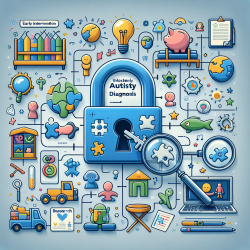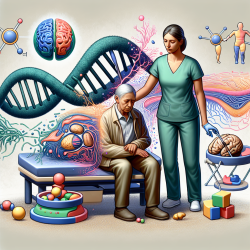As practitioners dedicated to fostering optimal outcomes for children, we must constantly seek to integrate the latest research findings into our therapeutic practices. A recent study titled The Relationship between Motor Coordination Ability, Cognitive Ability, and Academic Achievement in Japanese Children with Autism Spectrum Disorder and Attention Deficit/Hyperactivity Disorder provides valuable insights that can significantly enhance our understanding and approach to working with children diagnosed with Autism Spectrum Disorder (ASD) and Attention Deficit/Hyperactivity Disorder (ADHD).
Key Findings of the Study
The study explored the intricate relationships between motor coordination abilities, cognitive abilities, and academic achievement in children with ASD and ADHD. Key findings include:
- Children with ASD exhibited significant correlations between motor coordination abilities (as measured by the Movement Assessment Battery for Children-2, MABC-2) and various cognitive abilities (measured by the Kauffman Assessment Battery for Children-II, K-ABCII).
- Specifically, the MABC-2 Total score in children with ASD correlated with K-ABCII scores for Simultaneous Processing, Planning, and Total Cognitive Ability.
- For children with ADHD, no significant correlations were found between motor coordination abilities and cognitive abilities.
- In terms of academic achievement, the MABC-2 Total score in children with ASD was significantly correlated with Writing and Arithmetic scores, while no significant correlations were observed in children with ADHD.
Implications for Practitioners
These findings have profound implications for practitioners working with children diagnosed with ASD and ADHD:
- Tailored Interventions: The distinct differences in the relationships between motor coordination, cognitive abilities, and academic achievement in children with ASD and ADHD underscore the necessity for tailored interventions. Practitioners should consider incorporating motor coordination activities specifically designed to enhance cognitive and academic skills in children with ASD.
- Holistic Assessment: Given the significant correlations found in children with ASD, a holistic assessment approach that evaluates motor coordination, cognitive abilities, and academic achievement is essential. This comprehensive assessment can guide the development of targeted intervention strategies.
- Focus on Fine Motor Skills: The study highlights the importance of fine motor skills in children with ASD, particularly their relationship with simultaneous processing and planning abilities. Practitioners should emphasize activities that improve fine motor skills, such as manual dexterity exercises, to support cognitive development.
- Collaboration with Educators: Understanding the link between motor coordination and academic achievement can facilitate better collaboration with educators. Sharing insights from this study can help educators develop classroom strategies that support the unique needs of children with ASD.
Encouraging Further Research
While this study provides valuable insights, it also opens avenues for further research. Practitioners are encouraged to explore the following areas:
- Investigating the underlying neurological mechanisms that contribute to the observed differences between children with ASD and ADHD.
- Examining the long-term impact of motor coordination interventions on cognitive and academic outcomes in children with ASD.
- Exploring the role of other factors, such as sensory processing and emotional regulation, in the relationship between motor coordination and cognitive/academic abilities.
By staying informed and actively engaging in research, practitioners can continue to enhance their skills and contribute to the development of evidence-based practices that support the diverse needs of children with neurodevelopmental disorders.
To read the original research paper, please follow this link: The Relationship between Motor Coordination Ability, Cognitive Ability, and Academic Achievement in Japanese Children with Autism Spectrum Disorder and Attention Deficit/Hyperactivity Disorder.










